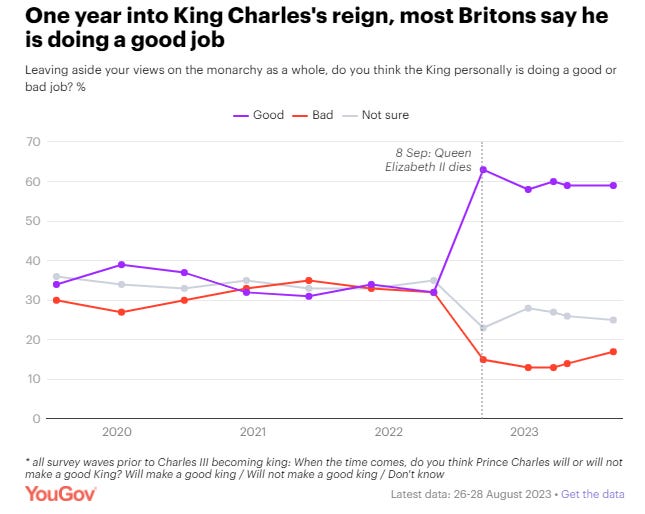Yes, The British Monarchy Is Still Relevant
The death of the institution of monarchy has been greatly exaggerated
The King’s recent cancer diagnosis has thrust his health into global headlines, prompting contemplation on the enduring popularity of the monarchy. While some argue that the institution is irrelevant and outdated, a significant portion of the British public holds a contrary view. Despite vocal opposition from “republicans” advocating for the monarchy's …




